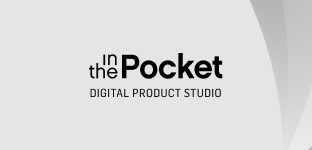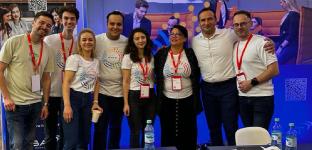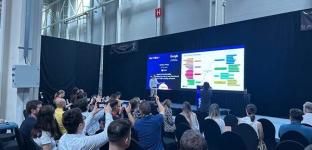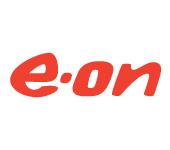Navigating the Future of Work: an interview with Marius Clapon, Head of IT Delivery @MassMutual Romania

Navigating the Future of Work: an interview with Marius Clapon, Head of IT Delivery @MassMutual Romania
The future of work is not a distant concept looming on the horizon, it is unfolding before our eyes, driven by rapid technological advancements, and shifting societal norms. In the dynamic world of technology, where innovation and adaptability are the keys to success, MassMutual Romania stands at the forefront, expediting technology transformation. As Head of IT Delivery, Marius Clapon, coordinates delivery needs across all functions, ranging from core technology to strategic initiatives and IT developments. Marius is more than a technologist; he is a visionary leader whose insights and strategies have been instrumental in steering the company through the rapidly evolving tech landscape.
In this interview, Marius delves into his personal journey with MassMutual Romania, revealing the passions and principles that drive him, as he reflects on the dynamics shaping tomorrow’s employment landscape, offering insights into what the future holds for employees and employers alike.
1. Can you please introduce yourself and tell us a few things about MassMutual Romania?
I am the Head of IT Delivery at MassMutual Romania; a company present on the Romanian market since 2020. Since the very beginning we opened two offices, in Bucharest and in Cluj-Napoca, and we kept scaling up since day one. Apart from the two offices, we now have people working remotely from all around the country, in over fifteen cities.
We focus on technology and our mission is to help the parent company accelerate its digital capabilities and enable it for the next stage of growth in the digital-first world we live in, meet the customers’ needs, and help anticipate the evolution of technology. We are still at the beginning of this journey, but we already have many success stories behind us, from building a very modern ETL platform, which will help the parent company migrate life policies from old legacy systems to more modern platforms, to streaming and API development. We are midway through cloud migration, as we embrace a cloud first approach, and our goal is to build everything cloud native. We also provide support for the parent company with security operations as we have a strong cyber hub. Everything we do in Romania is 100% focused on technology.
I was one of the first people that were hired, when the company decided to enter the Romanian market, so when I had the opportunity to build this center for MassMutual in Romania, I never looked back. What I enjoy most is building stuff in general but building teams in particular is rewarding. It was not easy or straightforward because we had to fight through lockdowns and the pandemic, but a couple of years later we find ourselves in the position to claim the Top Employer title in several categories, for the second year running, courtesy of the great people we have hired through the years. Although in the beginning we have set our goal to building a small to medium size team, I think now we have evolved to grow even bigger, and our growth curve always pointed up. I love what I’m doing, and I draw my energy from spending time with our teams and seeing them grow with the company that we’ve built together.
2. With the increasing prioritization on work-life balance by employees, how do you see companies adapting to meet these expectations?
We have all witnessed for the last couple of years and especially in the last period, that the work environment will never resemble what it used to be, and it has transformed and evolved quite fast. We saw a visible transformation during the pandemic, but it’s interesting to observe a keen interest that people take in prioritizing work-life balance. In fact, this is what we stand by at MassMutual Romania, making sure that our colleagues strike a healthy balance between their personal and professional life.
It's not just about flexible work arrangements, such as hybrid work options or flexible hours, there is also an increased recognition of the importance of mental health, policies that support well-being, and access to wellness programs. From providing health and life/accident insurance for our employees to creating a culture where people can speak openly or take a step back from work to focus on mental health, we aim to foster a better work-life balance, where people have the time and space they need for their personal lives. We also collaborate with experts in psychology, nutrition, financial and legal education, and other fields related to well-being and organize monthly sessions to help improve our colleagues’ approach to work and life in general. We understand the importance of being there for each other and by doing this, we carry on the tradition of living mutually.
3. How is automation expected to reshape the job market in the coming years and what skills do you believe will be most valuable in the future workplace?
In order to project a better image for the future, I believe it’s fundamental to accept the following concept: the pace of change will never be slower than it is today. Not only that we’ll experience an increased pace of change, but change will be a constant, which will redefine the term “comfort zone”. If this is the backdrop against which the picture will be painted, that leads us to the next applicable concept – constant learning. There will be a genuine need for reinventing ourselves, as the cycles of innovation become shorter and shorter. The ability to keep learning and embrace new technology is going to be a key differentiator in the job market.
AI, automation, and robotics are here to stay and it’s easy to anticipate that the most sought-after candidates will be those who are in sync with all these concepts. Eliminating repetitive tasks through robotics and automation of tedious work will create availability for people to employ their most valuable skillsets – their creativity and strategic thinking. This in turn will pave the way for critical thinking as a core focus for a new wave of people that don’t need to worry about repetitive tasks and focus instead on value generation. An attitude centered around outcome-based approaches will most likely be the way to go in a not-so-distant future, enabled by all the technological advances that will very quickly make their way from news headlines into our daily habits.
While AI tools are important to examine as part of that strategy, human oversight remains critical. This is where the importance of upskilling and reskilling comes into place. Offering training and development programs focused on digital skills and emerging technologies, as well as identifying and developing key skills such as critical thinking, complex problem solving and adaptability to change, is critical. Success is no longer guaranteed simply by blindly applying a given recipe; instead, employers will be looking for people who can pivot a lot faster and with very little lead time, people who can embrace change and those who are early adopters.
When we think of the future of work we can’t avoid talking about AI, automation, and robotics. Technology will evolve whether we like it or not. Keeping up to date with everything that is happening is essential, as is putting technology into place that meets actual business and customer needs. Lifelong learning and adaptability become indispensable traits for professionals.
4. How is the increasing emphasis on teamwork affecting workplace culture?
In order to understand teams and how they reflect workplace culture, one would need to start by looking at how businesses will measure success and one particular item would be an increased emphasis on innovative outcomes. Getting there requires a certain mix of capabilities and personalities – this will be an interesting angle to watch and a key driver to shape up the future expectations of team members and businesses alike.
The workspace will evolve more towards a team dynamic where individuals congregate and help one another, where they find common interests and pursue those. This shift emphasizes collaboration, reflecting a broader understanding that complex problems often require multidisciplinary solutions. It’s also reshaping the work environment by fostering a culture of support and shared goals, where the success of the individual is linked to the success of the team.
The flexibility to move sideways within any organization will be a must, as will the fluidity to pivot between the needs of the team and personal development. Striking a balance between the two, or, even better, perfect alignment between these two will probably be the sweet spot in a rather near future. Organizations that acknowledge and enable their people to develop on the job and pursue career goals outside of their immediate surroundings will benefit the most from their teams wanting to deliver those innovative outcomes mentioned previously. In turn, teams that link their personal growth to the success of the group will allow themselves to thrive in an increasingly competitive environment.
Last, but not least, I believe there are two currencies at play: energy and enthusiasm. Exchanging one for the other is a fair game, as long as one does not dominate the other. It’s OK to feel low on energy from time to time and employ your creative side to overcome it and vice-versa, when ideas just don’t come along, energy reserves will come to the rescue. It’s the same dynamic in a team, where ideally, everyone trades equal amounts of the two to strike a perfect balance amongst team members. Afterall, a team is a group of people who trust each other and complement each other when needed.
This approach not only creates workplaces that are more dynamic, but also leverages diverse perspectives and skills, leading to more innovative outcomes. One good example from within MassMutual Romania is the creation of an innovation lab where individuals can brainstorm ideas and build quick prototypes to test new technologies and pitch new ideas to advance our digital agenda. This lab fosters a culture of creativity and openness to failure as a step towards innovation. By bringing diverse groups together to tackle projects, we amplify the benefits of teamwork, encouraging our colleagues to leverage their collective strengths and perspectives. The pace of change will never be slower than it is today, so we need to be ready to pivot and to evolve, to stay adaptable in a rapidly changing industry.
The future of work is about navigating change, influenced by technological innovation and societal shifts. As we delve into it, flexibility, resilience, and a commitment to lifelong learning will be key to thriving in this new employment landscape. It will also hold the opportunity of creating a more adaptable and innovative workforce. One thing is for sure, the future of work will never be the same and hopefully, that’s a change for the better.
Find out more in the following video:
Alte articole din aceasta sectiune:
-
 Discover InThePocket - New IT company to keep an eye on
Discover InThePocket - New IT company to keep an eye on
- Discover Revolut - the TECH company to keep an eye on in 2024
- Centrul de tehnologie si operatiuni al LSEG (London Stock Exchange Group) ajunge la 1000 de angajati in Bucuresti
- Meet BAT Romania
- Top 5 criterii cu cea mai mare si cea mai mica relevanta in procesul de recrutare al candidatilor. Peste 7.000 de joburi la Angajatori de TOP Bucuresti

















Raporteaza eroarea la